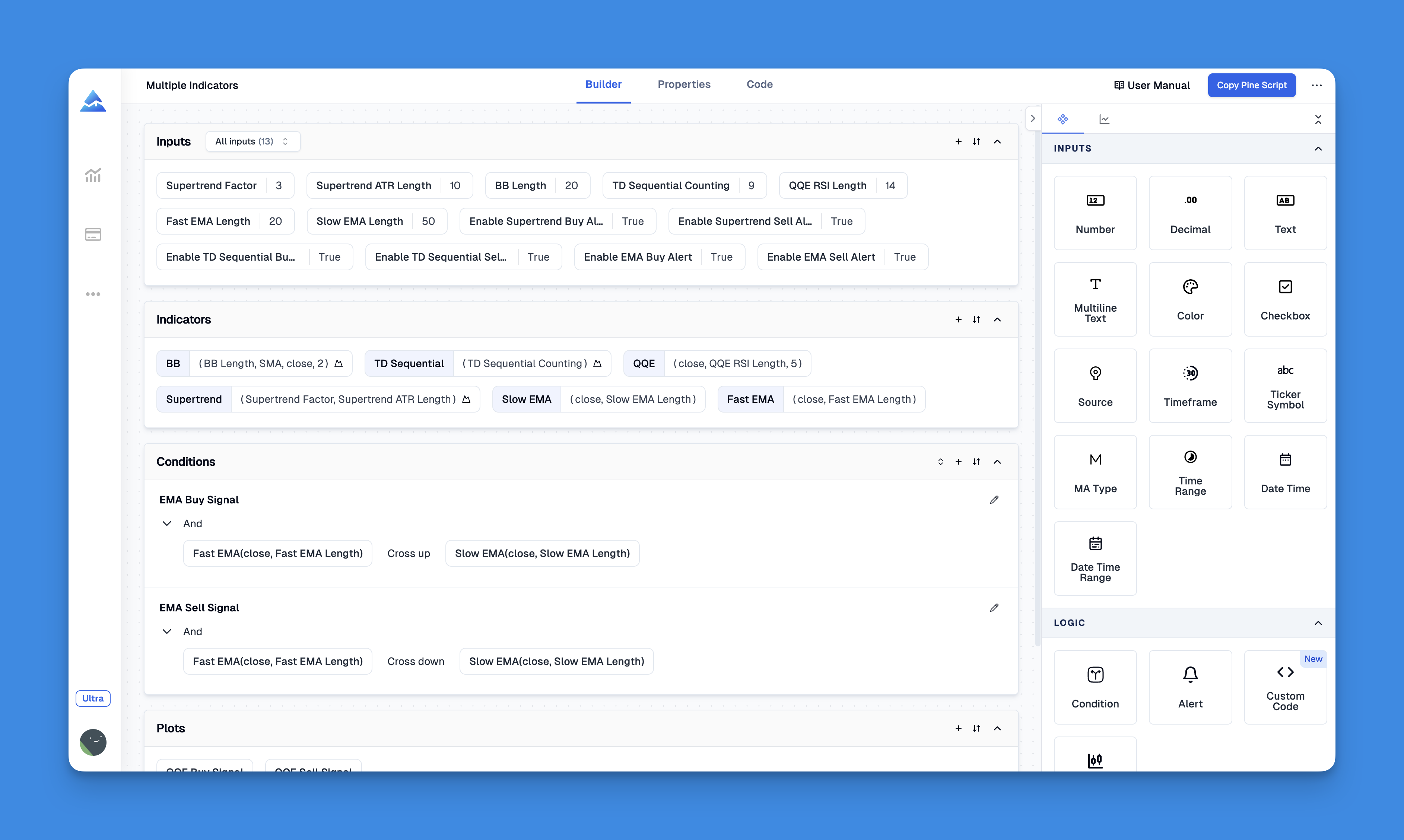What Causes the “Undeclared Identifier” Error in Pine Script?
When working with Pine Script, encountering the "undeclared identifier" error is a common hurdle, especially for those transitioning between versions or writing complex scripts. This error means that your code is trying to use a variable or function name that Pine Script does not recognize because it hasn't been declared or is out of scope.
- Using variables before declaring them: If you reference a variable before it is defined, Pine Script will throw this error.
- Scope issues: Variables declared inside conditional blocks (like
ifstatements) are only accessible within those blocks. Trying to use them outside causes the error. - Version differences: Pine Script has evolved, and some identifiers have changed. For example, in Pine Script v4 and above,
tickeridbecamesyminfo.tickerid, and color names require thecolor.prefix (e.g.,color.redinstead of justred). - Incorrect input types: Using outdated or incorrect input types, such as
resolutioninstead ofinput.resolutionin v4+, can cause undeclared identifier errors. - Copying code from older versions: Scripts written for Pine Script v3 or earlier may use identifiers that no longer exist or have been renamed in newer versions.
How Pineify Helps Prevent "Undeclared Identifier" Errors in Pine Script
The "Undeclared Identifier" error in Pine Script typically occurs when variables or functions are referenced before being declared. Pineify’s visual tools automatically handle code structure to minimize such errors.

Website: Pineify
Click here to view all the features of Pineify.Its Condition Editor ensures all variables are properly initialized before use by guiding users through a step-by-step process to define inputs, plots, and logic. For example, when creating a custom indicator, Pineify’s interface enforces declarative workflows:
How to Fix the “Undeclared Identifier” Error
1. Declare Variables Before Use
Always declare your variables at the start of your script or before you use them. For example:
//@version=4
study("Example Script")
float myVar = na // Declare variable with default value
if (close > open)
myVar := close - open // Assign value inside conditional
plot(myVar)
This ensures the variable myVar is known throughout the script, avoiding scope issues1.
2. Use Correct Version-Specific Identifiers
Update your code to use the correct identifiers for your Pine Script version:
- Replace
tickeridwithsyminfo.tickerid - Use
input.resolutioninstead of justresolutionfor input types - Prefix colors with
color., e.g.,color.greeninstead ofgreen23
3. Avoid Using Variables Inside Conditionals Without Proper Scope
If you define a variable inside an if block and need to use it later, declare it outside first with a default value, then assign inside the block using the := operator4.
4. Check for Typos and Missing Declarations
Make sure every variable or function you use is declared or built-in. If you add new variables like open_2_days_ago or close_3_days_ago, ensure they are properly defined before use5.
Quick Tips to Prevent “Undeclared Identifier” Errors
- Always initialize variables outside conditionals.
- Use the latest Pine Script documentation to verify identifier names.
- When upgrading scripts from older versions, carefully update deprecated identifiers.
- Use the
:=operator for reassigning variables. - Test your script incrementally to catch errors early.
Why Does This Matter for Your Pine Script Projects?
Fixing undeclared identifier errors not only ensures your script runs but also improves code readability and maintainability. Understanding variable scope and version-specific changes helps you write robust Pine Script code that works seamlessly on TradingView.
